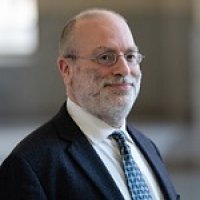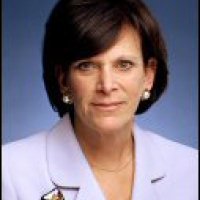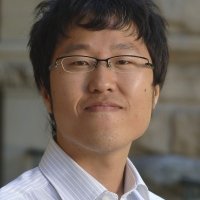Um debate sobre o significado do primeiro, e quase único – ocorreu outro, pouco depois, sobre Nagasaki – bombardeio atômico no contexto do cenário internacional, da época e depois.
https://www.wilsoncenter.org/event/age-hiroshima-nuclear-revolution-75th-anniversary-atomic-bombings?emci=1dfdf53c-494f-ea11-a94c-00155d039e74&emdi=2490c82a-514f-ea11-a94c-00155d039e74&ceid=36813

 Video & key quotes
Video & key quotes
“There is a diffuse effort to blend the history and Hiroshima’s legacy into social movements, and to leverage, and remind, and have all of that feed into our politics and diplomacy,” observes G. John Ikenberry, Albert G. Milbank Professor of Politics and International Affairs at Princeton University.
On August 6, 1945, in the waning days of World War II, the United States dropped an atomic bomb on the Japanese city of Hiroshima. The city’s destruction stands as a powerful symbol of nuclear annihilation, but it has also shaped how we think about war and peace, the past and the present, and science and ethics. The Age of Hiroshima, published by Princeton University Press in January 2020, traces these complex legacies, exploring how the meanings of Hiroshima have reverberated across the decades and around the world.
Age of Hiroshima editors Michael Gordin and John G. Ikenberry, as well as contributor Alex Wellerstein, will discuss how the bombing of Hiroshima gave rise to new conceptions of our world and its precarious interconnectedness, and how we continue to live in its dangerous shadow today. Toshihiro Higuchi and Jessica Mathews, in commenting on the volume, will offer their own perspectives on Hiroshima as an historical event and a cultural phenomenon.
Selected Quotes
Michael Gordin, Wilson Center Fellow and Rosengarten Professor of Modern and Contemporary History, Princeton University
“The biggest absence…is we still have no really good idea why we haven’t had nuclear war since. We have a lot of theories about why that’s the case, but we have an n of 2 in terms of use of nuclear weapons in war to kill people. They have been used in other ways; testing, placement for deployment, there’s all sorts of ways you can use a nuclear bomb without setting it off.”
“So once you have the sense that there’s a threshold, I think it actually restructures how you think about the conventional, and makes the conventional permissible – as long as you’re not going above that.”
G. John Ikenberry, Albert G. Milbank Professor of Politics and International Affairs, Princeton University
“We try to use Hiroshima as a site for turning its history into a kind of platform for debate, for education, for activism, for bringing people together each year, with reports that people who are elsewhere during the year. Thinking about how to control nuclear weapons, how to bring back the momentum that has kind of all gone away for arms control and disarmament.”
“There is a diffuse effort to blend the history and Hiroshima’s legacy into social movements, and to leverage, and remind, and have all of that feed into our politics and diplomacy.”
“I learned of the exquisitely complex way in which Japan thinks about Hiroshima, and the broader role of the war as both aggressor and victim.”
“Hiroshima had this kind of lightning affect – illuminating a landscape of international politics”
“The social milieu, the political milieu in which governments operate is so important. And that’s why in some sense, it’s so frightening today. Because remember the 80s? Remember when Reagan was deploying new missiles of intermediate missiles in Europe? There were millions of people in the streets in Europe and the United States.”
Alex Wellerstein, Stevens Institute of Technology
“The historians I know, the practicing people who work on this actively today, most of them think the revisionist narrative is wrong…. And they also think the orthodox narrative is wrong. And the reality is some very much more complicated thing.”
“Deterrence is in people’s minds. And it’s not a lot of people’s minds. For most of the world today, you’re talking about a dozen minds in the world, who are in charge of making…. Because we’ve centralized nuclear weapons unlike a lot of things our government does, nuclear arms are centralized. Basically, one person in the American system. It’s three people in the Russian system … You’re talking about a very small number of people, and if they have the idea that using the weapon is a terrible idea, then it’s enacted in the world. And if they don’t have the idea than we are in a dangerous, dangerous place. “
“I will say I think that there’s a lot of factors. And instead of saying, ‘we can’t know,’ I would say it seems incredibly contingent. Which is really just a very intellectual way of saying, ‘well, it depends on what happens that day.’ And that’s not reassuring.”
Toshihiro Higuchi, Assistant Professor, Edmund A. Walsh School of Foreign Service, Georgetown University
“I think of how fruitful it is to really bring together many different scholars… We have, you know, Japanese historians, literary scholars, and then political scientists, and the history of science, and the sociologists of science.”
“I think it’s about, really, if we can think about ourselves as an independent thinking citizen, as opposed to identifying ourselves completely with the state or nation.”
“I think it’s important to make them curious, so that they start asking questions, and they start exploring themselves.”
SPEAKERS





